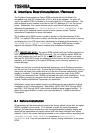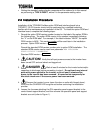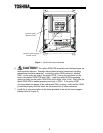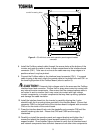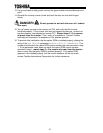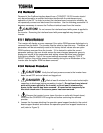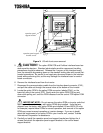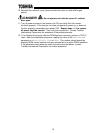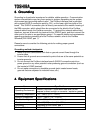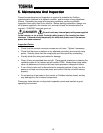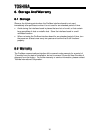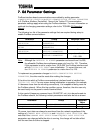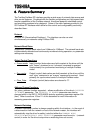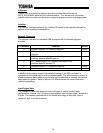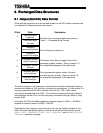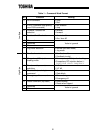
14
3.
3.3.
3.
Grounding
GroundingGrounding
Grounding
Grounding is of particular importance for reliable, stable operation. Communication
system characteristics may vary from system to system, depending on the system
environment and grounding method used. The Profibus interface card is provided
with a plated SHIELD connection point by CN1, on the lower right-hand side of the
board. This SHIELD connection point is directly connected to the metallic housing of
the DB9 connector, which should then be connected to the shield of the Profibus
network cable through the Profibus connector. To ground the network cable shield,
therefore, connect a wire with lug terminal to this SHIELD point, and then connect the
other end of the wire to an appropriate ground. For specific details and requirements
regarding protective grounding and the Profibus network, refer to the Profibus
Standard (DIN 19245, part 1).
Please be sure to consider the following points for making proper ground
connections:
Grounding method checkpoints
1. Make all ground connections such that no ground current flows through the
inverter case.
2. Ensure that all grounds are connected to points that are at the same potential as
inverter grounds.
3. Do not connect the Profibus interface board's SHIELD connection point to a
power ground or any other potential noise-producing ground connection (such as
the inverter's E/GND terminal).
4. Do not make connections to unstable grounds (paint-coated screw heads,
grounds that are subjected to inductive noise, etc.)
4.
4.4.
4.
Equipment Specifications
Equipment SpecificationsEquipment Specifications
Equipment Specifications
Item Specification
Operating Environment
Indoors, less than 1000m above sea level, do not
expose to direct sunlight or corrosive / explosive gasses.
Operating Temperature
-10 ∼ +40°C (+14 ∼ +104°F)
Storage Temperature
-25°C ∼ +65°C (-13 ∼ +149°F)
Relative Humidity
20% ∼ 90% (without condensation)
Vibration
5.9m/s
2
{0.6G} or less (10 ∼ 55Hz)
Grounding According to DIN 19245, part 1
Cooling Method Self-cooled



